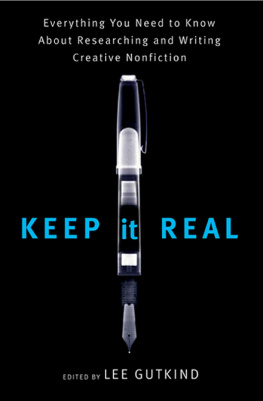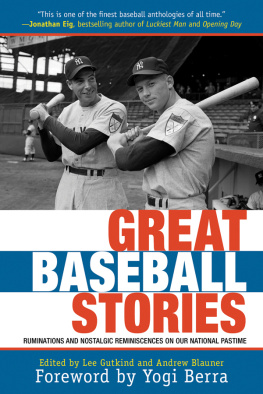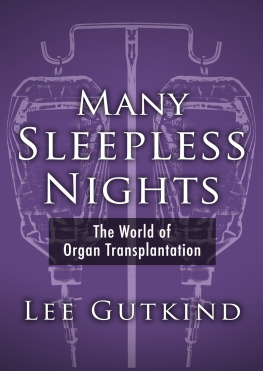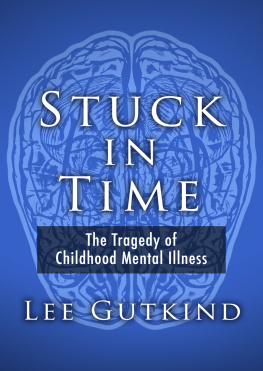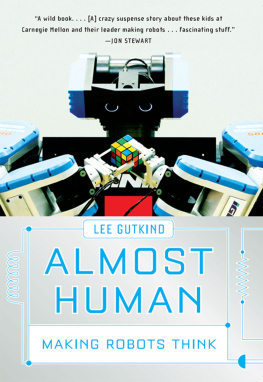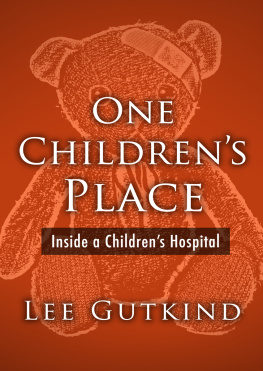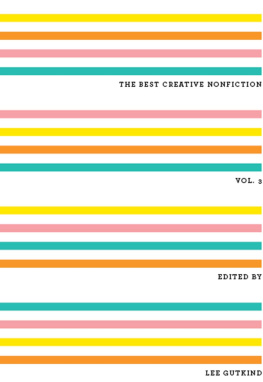Lee Gutkind - What I Didnt Know: True Stories of Becoming a Teacher
Here you can read online Lee Gutkind - What I Didnt Know: True Stories of Becoming a Teacher full text of the book (entire story) in english for free. Download pdf and epub, get meaning, cover and reviews about this ebook. year: 2016, publisher: Fourth Chapter Books, genre: Detective and thriller. Description of the work, (preface) as well as reviews are available. Best literature library LitArk.com created for fans of good reading and offers a wide selection of genres:
Romance novel
Science fiction
Adventure
Detective
Science
History
Home and family
Prose
Art
Politics
Computer
Non-fiction
Religion
Business
Children
Humor
Choose a favorite category and find really read worthwhile books. Enjoy immersion in the world of imagination, feel the emotions of the characters or learn something new for yourself, make an fascinating discovery.

- Book:What I Didnt Know: True Stories of Becoming a Teacher
- Author:
- Publisher:Fourth Chapter Books
- Genre:
- Year:2016
- Rating:3 / 5
- Favourites:Add to favourites
- Your mark:
- 60
- 1
- 2
- 3
- 4
- 5
What I Didnt Know: True Stories of Becoming a Teacher: summary, description and annotation
We offer to read an annotation, description, summary or preface (depends on what the author of the book "What I Didnt Know: True Stories of Becoming a Teacher" wrote himself). If you haven't found the necessary information about the book — write in the comments, we will try to find it.
What I Didnt Know: True Stories of Becoming a Teacher — read online for free the complete book (whole text) full work
Below is the text of the book, divided by pages. System saving the place of the last page read, allows you to conveniently read the book "What I Didnt Know: True Stories of Becoming a Teacher" online for free, without having to search again every time where you left off. Put a bookmark, and you can go to the page where you finished reading at any time.
Font size:
Interval:
Bookmark:
Table of Contents
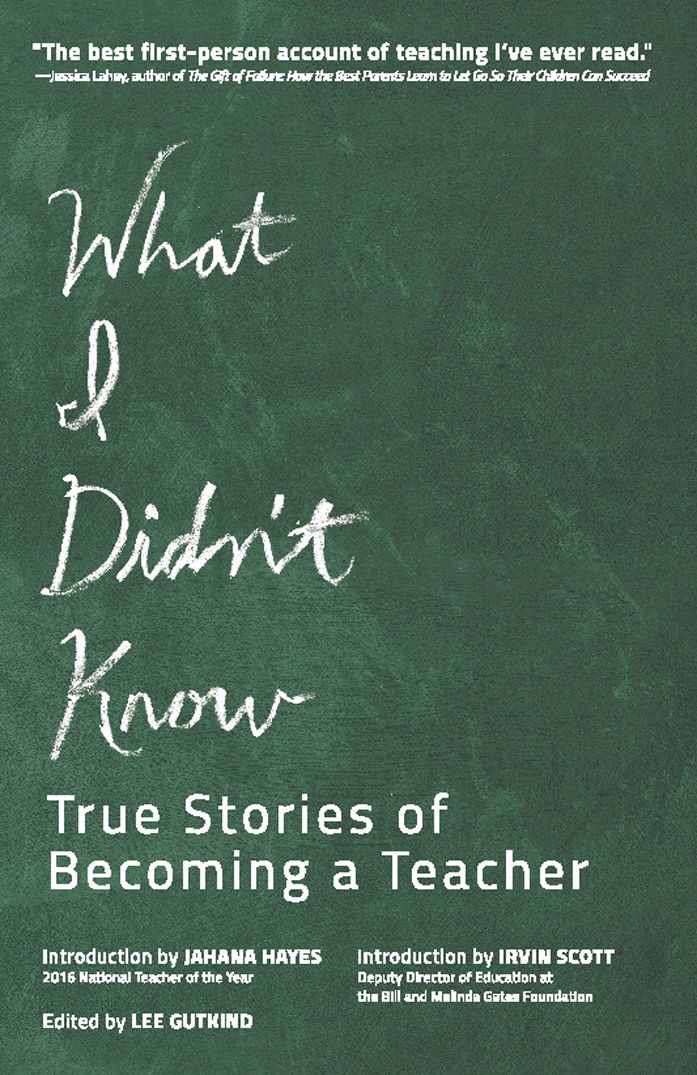


Copyright 2016 Creative Nonfiction Foundation.
All rights reserved.
Kristin Leclaires Inside the Labyrinth was originally published in Biting the Bullet: Essays on the Courage of Women (Chatter House Press 2015) and appears here by permission of the author.
Portions of Anne Raeffs Mayans in East Oakland were published in Reimagining California, a partnership of the California Endowment and Zcalo Public Square.
Requests for permission to reproduce material from this work should be sent to:
Rights and Permissions
In Fact Books
c/o Creative Nonfiction Foundation
5119 Coral Street
Pittsburgh, PA 15224
Cover design by Seth Clark
Interior design/layout by The Printed Page
Table of Contents
Lee Gutkind
When my brother Richard was nearing the end of his college career back in the 1970s, he didnt quite know what he was going to do. He was a math major but had no interest in accounting, he didnt want to become a CPA or tax attorney, and in truth, he wasnt crazy about the idea of playing with numbers for the rest of his life. So, in his senior year he took a couple of education courses in a program that was a shortcut to teacher certification, and upon graduation he was offered a job in a newly opened middle school. He pondered for a while, then decided to try it out. It was a way of starting adult life with a steady paycheck, decent hours, long summer vacations. For my brother, becoming a teacher was a beginning, not a passion or a missionjust a job for a young man seeking a direction.
Many of the contributors in this collection became teachers under similar circumstances, as an interim thing, a first job out of college. And for most of them it was the first stop in a long journey leading to a real career and fulfillment, professional accomplishment, and personal satisfaction. Thats not to say that all of these writers have remained in the K12 spheremany have moved on to universities, community colleges, and administrative positionsbut in one way or another, all have stayed connected to the teaching profession.
Some of the other writers in this collection were not teachers first; among them are an attorney, a research scientist, and a network TV producer. Dissatisfaction with what they were doing led them to teaching, despite all of the obvious and well-known challenges. Like low pay. Or the political agendas of outsiders, who measure progress by often irrelevant standardized testing. Or conflicts with parentsor with the students themselves. But these writers remained teachers despite the frustrations because, they discovered, teaching makes a differencenot only to students, but to teachers, too.
For an example of the difference teachers can make, we can look to the story of Jahana Hayes, who contributed one of the introductions to this book. Jahana grew up (as too many American children do) surrounded by drugs, violence, and poverty. She became pregnant at age seventeen. But twelve years later, after working her way through a community college and a local university, she returned to her hometown and got her first teaching job. In 2016, she was named National Teacher of the Year by the Council of Chief State School Officers. In Hayess first appearance as Teacher of the Year, with President Obama at the White House, she discussed the passion and commitment required of teachers. She also talked about the great responsibilities with which we entrust our teachers, including the responsibility, as well as opportunity, to share their empowering stories with students and communities and elevate this profession.
This is exactly what What I Didnt Know is all about: teachers sharing their experiences in the trenches of the school system and exploring what those experiences meantand still meanto them. Some of these stories may be difficult to read or believe because of how hard these teachers work, how much they care about their students, and how frustrating and sometimes downright devastating their daysand their semesterscan be. In Order, for example, Michael Copperman labors to understand his most troubled student until, suddenly, the boy storms into the classroom, knocks over desks and chairs, and spits in Coppermans face. In Ancient Beef Made Me a Teacher, Lori D. Ungemah observes a fight between two high school boys in her classroom. She is horrified at the sound of cartilage popping and the explosion of blood, and she breaks down sobbing. But she is even more horrified when, after the fight is broken up by security guards, her streetwise students file out of the classroom, silent and seemingly unfazed.
And yet these teachers stayed in the classroomnot forever, but for several more years. And they are not alone. Education is the fourth largest major at universities and colleges in the United States. The annual overall attrition rate for teachers is barely 8 percent (though its higher for early career teachers and for teachers in lower-income schools). In a recent study conducted by researchers at Arizona State University, nearly 60 percent of respondents (they were all K12 teachers in Arizona) reported that they were very satisfied or satisfied with their jobs.
One thing that makes teaching special and fulfilling is the amount of independence teachers have and the influence a teacher can wield. While it is true that teachers must follow a curriculum, they are pretty much on their own behind classroom doors, with anywhere from twenty to fifty individual, unformed personalities, kids seeking answers to questions that they might not even understand. Teachers must advise, communicate information, solicit and encourage ideas, and maintain discipline and an atmosphere conducive for learning. And they must be flexible, able to roll with the punches (literal or figurative) and fill voids, sensing and responding to their students needs.
Its a tall order, to be sure. And not every teacher can reach every student, every day. But the best teachers can reach most of the students, most of the daysand that can make a tremendous difference.
In a statement to the White House, Jahana Hayes recalled the importance of teachers in her life. Teachers recognized her potential. They did not give up on her. They gave her books to read at home. They encouraged me to do more, be more, expect more. Her teachers made a lifelong impact; ultimately, she says, They inspired me to become a teacher so I could make the same kind of impact in my own students lives.
Sometimes, its impossible to guess at the impact a teacher can make; sometimes it takes years, and sometimes the impact is quite unlikely.
My brother Richard stayed in the classroom for many years, and then he became a principal, and then an executive director of the school system in which his teaching journey began. He is now the director of a graduate program in education, but his students from his middle school teaching days still remember and appreciate him. No matter where I go with him in his hometown, Richard is recognized. Former students, who now look almost as old as he does, come up to thank him for his guidance and wisdom. Not long ago, we attended a production of the Tony Awardwinning musical Kinky Boots together. After the show, he was welcomed at the stage door and embraced by one of the cast members.
Next pageFont size:
Interval:
Bookmark:
Similar books «What I Didnt Know: True Stories of Becoming a Teacher»
Look at similar books to What I Didnt Know: True Stories of Becoming a Teacher. We have selected literature similar in name and meaning in the hope of providing readers with more options to find new, interesting, not yet read works.
Discussion, reviews of the book What I Didnt Know: True Stories of Becoming a Teacher and just readers' own opinions. Leave your comments, write what you think about the work, its meaning or the main characters. Specify what exactly you liked and what you didn't like, and why you think so.

